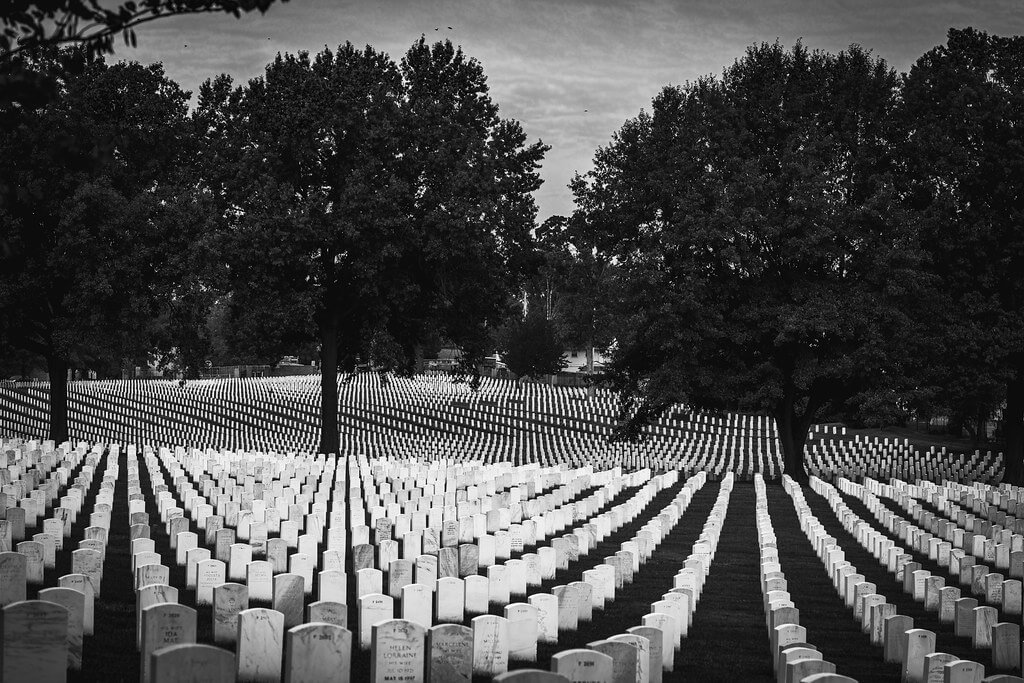“Patriotism means to stand by the country. It does not mean to stand by the president or any other public official, save exactly to the degree in which he himself stands by the country. It is patriotic to support him insofar as he efficiently serves the country. It is unpatriotic not to oppose him to the exact extent that by inefficiency or otherwise he fails in his duty to stand by the country. In either event, it is unpatriotic not to tell the truth, whether about the president or anyone else.” ―
Some family stories are worth a road trip especially when those stories include an American  Revolutionary War patriot. Colonel Thomas V. Hunt and Major Russell Bissel are two of three Revolutionary War soldiers, whose final resting place is Jefferson Barracks near St Louis. MO. Col. Hunt is my husband’s sixth great-grandfather. Whereas, Russell Bissell was related through the marriage of his son to Eunice Hunt Tripler’s sister.
Revolutionary War patriot. Colonel Thomas V. Hunt and Major Russell Bissel are two of three Revolutionary War soldiers, whose final resting place is Jefferson Barracks near St Louis. MO. Col. Hunt is my husband’s sixth great-grandfather. Whereas, Russell Bissell was related through the marriage of his son to Eunice Hunt Tripler’s sister.
Thomas Hunt is Eunice Hunt Tripler’s grandfather whom I have used as an example of why family stories must be captured. The book “His Sword A Scapel” about her husband, Brevet General Charles Stuart Tripler, my husband’s namesake, mentions the final resting place of the Hunts. I realized we would pass near Jefferson Barracks on an already-planned road trip coming up. As a result, we adjusted our itinerary to visit these two gravesites.
Patriot Visitation
Why, when one can see the headstones and get all the information online, does one take the time to visit a past patriot in person? Here are my three reasons:
a past patriot in person? Here are my three reasons:
- First, context everything. I had never heard of Jefferson Barracks. It is a lovely setting with beautiful historic buildings alongside the Mississippi River. The National Cemetary is as breathtaking, even though less grand, as Arlington and Normandy.
- Second. There is something about being there. Seeing and touching our ancestors’ final resting place is a basic human need. At the same time, there are aspects, such as the grazing deer and bunnies who keep watch, we would not meet unless we visited.
- Third. It is a matter of honor and respect. Respect for family and to show honor to those who have played key roles in our national founding is important We should invest time in this.
An American Revolutionary War Patriot
The American Revolutionary War was fought by patriots who made hard choices. A read of the Declaration of Independence and its list of grievances shows the forbearance our forefathers granted King George. This was no knee-jerk reaction, but rather a long build of abuse over decades that led to this national break.
Colonel Thomas Hunt (1754–1808), was a “Minuteman” at the Battle of Concord, in April 1775. During the revolution, he was wounded at the Battle of Stony Point and the Siege of Yorktown. He was also a veteran of the Indian Wars and commanded the 1st Infantry Regiment.
We did not stay long – an hour or two, but it was worth it. It gives us a touchstone to connect with when we think of Colonel Hunt and Major Bissell. May they rest in peace.
